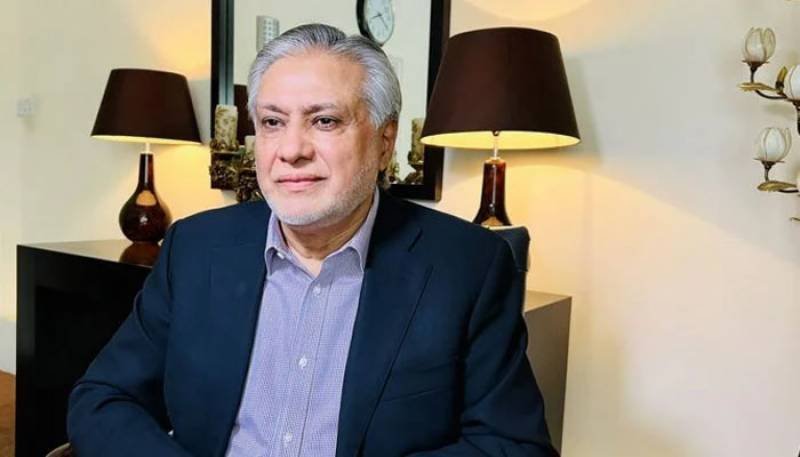Islamabad (Web Desk): Finance Minister Ishaq Dar on Friday said that Pakistan and the International Monetary Fund (IMF) have mutually agreed to a number of points for the completion of ninth review of the Extended Fund Facility (EFF), entitling Pakistan to a 1.2 billion dollars tranche.
Addressing a press conference in Islamabad, the finance minister said that the government will have to impose Rs170 billion in taxes through a mini-budget in order to revive the loan programme.
He confirmed that the government had received the draft of the Memorandum of Economic and Financial Policies (MEFP) from the IMF.
"We have received the draft of MEFP from the IMF and talks on it will virtually be started from Monday," the finance minister said.
Ishaq Dar said reforms in the energy sector will be implemented and its main thrust is to check the flow of the circular debt.
He said the circular debt in the gas sector will be brought to zero while untargeted subsidies will be minimized. He said these decisions in fact are in the country's own interest to fix the economy.
The finance minister said commitment vis-a-vis Petroleum Development Levy has almost been fulfilled.
He said that the budget of Benazir Income Support Programme (BISP) will be increased by Rs40 forty billion from Rs360 billion to Rs400 billion in order to reduce the burden of inflation on the most vulnerable segments of the society.
Ishaq Dar said the next tranche for Pakistan will be released after approval by the global lender's executive board.
It is pertinent to mention that an IMF mission led by Nathan Porter visited Islamabad from January 31 to February 9 to hold discussions under the ninth review of the authorities’ programme supported by the IMF's EFF arrangement.
At the end of the visit, IMF mission in a statement said that “considerable progress” was made during the talks with Pakistani officials on “policy measures to address domestic and external imbalances”.
Mr Nathan Porter also thanked the authorities for the “constructive discussions”.


